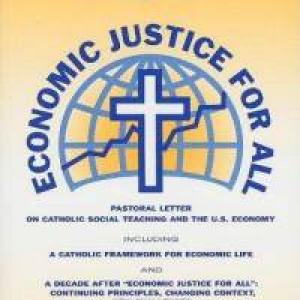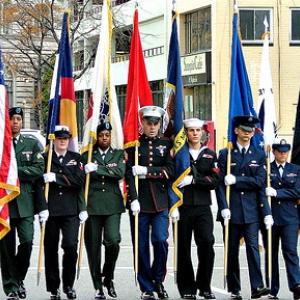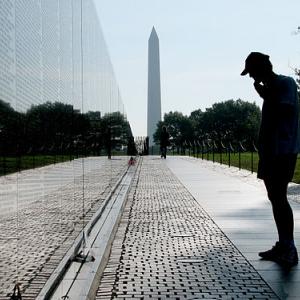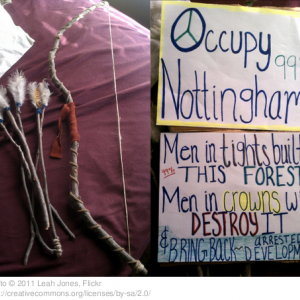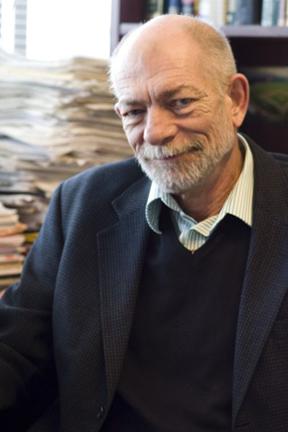
Duane Shank was Associate Editor for Sojourners magazine and was on the staff from 1995 to 2014.
Duane has been active as an organizer and administrator in the peace and justice movement for 35 years, beginning as a draft resistance and antiwar organizer during the Vietnam war. He has worked as a community organizer in the rural south, in interfaith coalitions, and in the nuclear weapons freeze and Central America solidarity movements of the 1980s. His positions have included Associate for the National Inter-religious Service Board for Conscientious Objectors; National Coordinator for the Committee Against Registration and the Draft; Deputy Director and Acting Executive Director for SANE/Freeze; and Research Fellow for the Institute for Policy Studies.
Duane attended Eastern Mennonite University. He is a Anabaptist/Mennonite, and currently an active member and serves on the worship leadership team of the Community of Christ ecumenical congregation in the Mt. Pleasant neighborhood of Washington, D.C. His views on faith and politics have been shaped by (among others), John Howard Yoder, Abraham Joshua Heschel, Martin Luther King, Jr., Dietrich Bonhoeffer, and Oscar Romero.
Duane is married to Ellen Kennel. They have a daughter, Celeste, a graduate of Goshen College, IN, the Medill School of Journalism at Northwestern University, and the University of Chicago Divinity School.
In addition to family, church, and work; his passions are baseball (Washington Nationals), blues (Buddy Guy and Stevie Ray Vaughan) and bluegrass music (Ralph Stanley), and barbecue.
Posts By This Author
Bring the Troops Home
President Obama’s announced plan has U.S. troops leaving Afghanistan by the end of 2014. The American people, and now the U.S. Senate want them home sooner. As we watch the last U.S. troops leaving Iraq, there are still nearly 100,000 remaining in Afghanistan. Nearly 2,000 have died, and the cost is now nearly $500 billion.
After a decade, it’s time to bring also them home.
Tom Wicker, 1926-2011
I am one of those who still prefer ink on paper to pixels on a screen. But no matter how you get your news, the passing of a giant is worth noting. Tom Wicker, reporter and columnist for The New York Times for 30 years, died on Saturday. The Times described him as “one of postwar America’s most distinguished journalists.”
Wicker was a meticulous reporter and a passionate advocate, so much so that he was sometimes criticized for overstepping the bounds of objectivity. But when faced with the major events he wrote on, how could he not be?
A Photo Goes Viral, Enters History
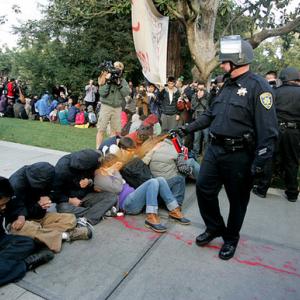
UC Davis student photojournalist Brian Nguyen's iconic photograph via The California Aggie http://bit.ly/t6DP3R
There are photographs that have become part of our iconic memory.
Think of German shepherds straining at their leashes and the water from fire hoses striking students in Birmingham, the young woman at Kent State kneeling in anguish over the body of a student who had just been killed by National Guard bullets, a young girl running naked down the road after a napalm attack on Vietnam.
The Morning SoJo: Of Supercommittees and Such
Rather than the opinions of individual pundits, here’s a roundup of what the editors of some of the nation’s largest newspapers had to say this week about the failure of the “Supercommittee.”
Some blame Republicans, some blame Democrats, and most blame both.
Washington Post: “What next, now that the congressional supercommittee has failed? Depressingly, the answer is: not much, at least in the short term. Absent some intervening, cataclysmic event, the debt-reduction can has been kicked once again — this time, until after the election.”
The Independent (London): “The failure of the comically mis-named "super-committee" of Congress to come up with even the modest debt reduction package required of it has been a racing certainty for weeks in Washington. Nonetheless, Monday evening's admission of that failure – the latest proof of the dysfunctionality of America's political system – is not only shameful. It is also dangerous.”
Economic Justice for All
It’s worth remembering that in 1986, 25 years ago, the bishops at their annual meeting approved a pastoral letter on the economy, “Economic Justice for All.” It was, and still is, a powerful statement of Catholic social teaching on the “important social and moral questions for each of us and for society as a whole” that are raised by our economic life. It’s a letter that the entire church, Catholic or not, should read and affirm.
In an opening section, “Why we write,” the bishops ground their letter: “The life and words of Jesus and the teaching of [God's] Church call us to serve those in need and to work actively for social and economic justice. As a community of believers, we know that our faith is tested by the quality of justice among us, that we can best measure our life together by how the poor and the vulnerable are treated.”
A Real Tribute for Veterans? Increase Their Benefits.
Today’s veterans are suffering through the current recession. They have a higher unemployment rate are are more likely to be or become homeless than the rest of the U.S. population.
Thankfully, the Senate yesterday unanimously passed jobs for veterans legislation that should begin to help.
But other problems remain. As many as 25 percent have symptoms of post-traumatic stress disorder and suicides are rising. Forty-six-thousdand have suffered devastating physical injuries, and as many as 360,000 may have brain injuries.
With this set of problems, the Veterans Administration doesn’t have the necessary resources to meet the profound need.
Listening to Veterans
Despite all that I knew 40 years ago about the policy and politics of the Vietnam war, I learned much more by simply listening to veterans. Late at night, often in bars, I heard about the war from the experience of those who fought it. And that taught me more than everything I had ever read. With tens of thousands of vets coming home from Iraq in the next two months -- and many more returning from Afghanistan over the next two years -- we'll have plenty of opportunities to say thanks, and then just listen.
The Morning Sojo: November 7, 2011
A round-up of recent Op-Ed columns from the mainstream media.
A Robin Hood for Wall Street
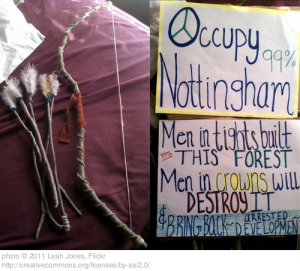
With the opening of the G20 Summit in Cannes, France today, an idea that's been around for awhile is in the news again and gaining more attention as a result of the #OWS movement: The so-called "Robin Hood tax," a minimal tax on all financial transactions with the resulting revenue dedicated to anti-poverty programs....Archbishop of Canterbury Rowan Williams, in his response to the occupation of St. Paul's Cathedral in London, endorsed the Vatican proposals. Williams observed that "people are frustrated beyond measure at what they see as the disastrous effects of global capitalism," and urged a full debate on "a Financial Transaction Tax
A Robin Hood for Wall Street
With the opening of the G20 Summit in Cannes, France today, an idea that’s been around for awhile is in the news again and gaining more attention as a result of the #OWS movement: The so-called “Robin Hood tax,” a minimal tax on all financial transactions with the resulting revenue dedicated to anti-poverty programs….Archbishop of Canterbury Rowan Williams, in his response to the occupation of St. Paul’s Cathedral in London, endorsed the Vatican proposals. Williams observed that ”people are frustrated beyond measure at what they see as the disastrous effects of global capitalism,” and urged a full debate on “a Financial Transaction Tax … or, popularly, a ‘Robin Hood Tax.’”
Sunday SoJo: OpEds You Might Have Missed
A selection of the past week's op-eds, on Iraq, the Occupy Wall Street movement, and a potpourri of other topics.
D.C. says no to ICE
The District of Columbia has no voting representation in Congress, and our city government hasn't always been the best. But yesterday, D.C. Mayor Vincent Gray issued a new executive order reaffirming and strengthening previous policies that District police and other public agencies will not cooperate with Immigration and Customs Enforcement. Under the policy, D.C. police will not ask questions about the immigration status of someone arrested, and will not enforce ICE detainers against someone who has not committed another crime.
Afternoon SoJo: Round-up of the Best Op-Eds of the Day
Farewell to Fred Shuttlesworth, Civil Rights Hero
The Rev. Fred Shuttlesworth, a pioneer and giant of the civil rights movement, died Wednesday at 89.
The Hard Cases
Requiem for Republicans
Too Poor to Die?
This Week in Afghanistan
? U.S. troops on the front line believe that the war will go on for another 10 years after they leave.
? An audit shows that the surge of U.S. civilian advisers has cost nearly $2 billion.
? The U.S. mission in Afghanistan has suspended the transfer of detainees to several Afghan jails, following torture allegations.
A Killing Machine
Two long pieces this weekend described "one hell of a killing machine," and "the dark matter
Survival of the Fittest?
Imagine. You're on a backpacking trip, hiking through deserted countryside on a hot day. You've been prudent, and have just enough water to get you to the next campsite that evening. Then you come across another hiker, short of water, who is beginning to show signs of stress. You don't know if there is any water nearby until you get to the campsite. What do you do?
The question was posed in a recent story about hiking in the Grand Canyon, where it regularly occurs. A spokesman at the Grand Canyon remembered at least one case in which someone died "trying to provide more help than they could physically afford to provide."
Some of the answers given by hikers were:
